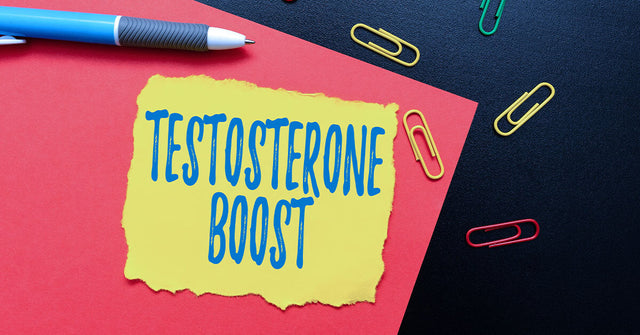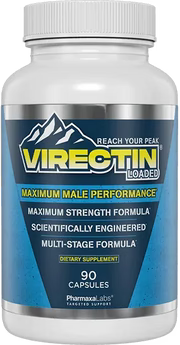Sexual health is a cornerstone of overall well-being, and understanding the intricacies of male orgasm plays a pivotal role in this domain. The Male Orgasm Guide, often associated merely with the peak of sexual pleasure, is a complex physiological event with far-reaching implications for both physical and mental health. This comprehensive guide delves into what happens during a male orgasm, why it matters, and the potential issues that can arise, providing a balanced and informative perspective for men seeking to enhance their sexual health and experiences.
Understanding the Male Orgasm
The Physiology of Male Orgasm
A male orgasm is the culmination of a series of coordinated physiological events triggered by sexual stimulation. It typically involves rhythmic contractions of the pelvic muscles, an increase in heart rate, and a surge of pleasurable sensations culminating in ejaculation. The process begins with sexual arousal, leading to erection as blood flows into the penile tissue. Continued stimulation elevates excitement, leading to plateau and eventual orgasm phases.
During orgasm, the body releases a cocktail of hormones and neurotransmitters, including dopamine, oxytocin, and endorphins. These chemicals not only contribute to the sensation of pleasure but also foster a sense of bonding and relaxation post-orgasm. The refractory period, a phase of reduced sexual responsiveness following orgasm, varies among individuals and can be influenced by factors such as age and overall health.
Understanding the Male Orgasm Guide is essential for recognizing how these physiological processes contribute to overall sexual satisfaction and health. Each phase of the orgasmic response plays a critical role in ensuring that sexual activity is both pleasurable and beneficial.
Neurological Pathways
The male orgasm is orchestrated by a complex network of neurological pathways. Sensory inputs from the genital area are processed by the spinal cord and transmitted to the brain, particularly the limbic system, which governs emotions and pleasure. The autonomic nervous system plays a crucial role, with the sympathetic and parasympathetic branches regulating various aspects of the orgasmic response.
Scientific studies utilizing functional MRI scans have revealed that regions such as the prefrontal cortex, amygdala, and hypothalamus are significantly active during orgasm, highlighting the interplay between emotional states and physical sensations. This neurological engagement underscores the Male Orgasm Guide's role not just in reproduction but also in emotional well-being.
Why the Male Orgasm Matters
Physical Health Benefits
Experiencing regular orgasms has been linked to several physical health benefits. One notable advantage is the reduction of stress levels; the release of endorphins and other hormones during orgasm promotes relaxation and can alleviate tension. Additionally, frequent ejaculation has been associated with a lowered risk of prostate cancer, although research in this area is ongoing and findings remain inconclusive.
Orgasms also contribute to cardiovascular health. The increased heart rate and blood flow during sexual activity can function similarly to moderate exercise, potentially improving heart health over time. Regular sexual activity has even been linked to better immune function, with studies suggesting that individuals who engage in frequent orgasms may have higher levels of immunoglobulin A, an antibody that helps fight infections.
The Male Orgasm Guide emphasizes the importance of these physical benefits, encouraging men to incorporate healthy sexual practices into their lifestyle to reap these advantages.
Mental and Emotional Well-being
Beyond physical health, orgasms play a significant role in mental and emotional well-being. The release of dopamine during orgasm enhances mood and fosters feelings of pleasure and satisfaction. Oxytocin, often referred to as the 'love hormone,' is released during and after orgasm, strengthening emotional bonds between partners and promoting a sense of intimacy and trust.
Moreover, achieving orgasm can boost self-esteem and body image, contributing to overall psychological resilience. Men who experience frequent and satisfying orgasms may report higher levels of happiness and lower instances of anxiety and depression. In this way, the Male Orgasm Guide illustrates that the male orgasm is not just a biological process but a catalyst for emotional health and personal fulfillment.
Additionally, regular orgasms have been linked to improved cognitive function and memory. The mental clarity and stress relief provided by orgasms can enhance focus and productivity in daily life, further underscoring the significance of the Male Orgasm Guide in promoting comprehensive well-being.
What Can Go Wrong: Understanding Orgasm-Related Challenges
Despite the many benefits, several issues can interfere with the male orgasm, impacting both sexual satisfaction and overall health. Understanding these challenges is crucial for addressing them effectively and maintaining a healthy sexual life.
Erectile Dysfunction (ED)
Erectile Dysfunction, or the inability to achieve or maintain an erection sufficient for satisfactory sexual performance, is one of the most common sexual health issues facing men. ED can stem from various causes, including psychological factors like stress and anxiety, medical conditions such as diabetes and hypertension, or lifestyle factors like smoking and excessive alcohol consumption.
ED not only affects sexual performance but can also lead to decreased self-esteem, relationship problems, and emotional distress. It's important for men experiencing ED to seek medical advice, as it can sometimes be an early indicator of more serious health issues. The Male Orgasm Guide provides insights into managing ED through both medical and lifestyle interventions.
Premature Ejaculation (PE)
Premature Ejaculation is characterized by ejaculating sooner than desired, either before or shortly after penetration, often leading to frustration for both partners. PE can result from psychological factors, such as performance anxiety, or biological factors, including hormonal imbalances or neurotransmitter irregularities.
Chronic PE can impact relationships and trigger feelings of inadequacy. Treatment options range from behavioral techniques and psychological counseling to medications that can help delay ejaculation and improve control. The Male Orgasm Guide offers strategies and resources for overcoming PE, enhancing sexual satisfaction for both partners.
Delayed Ejaculation (DE)
Delayed Ejaculation refers to difficulty or inability to reach orgasm and ejaculate despite adequate sexual stimulation and desire. DE can be caused by psychological factors like depression, anxiety, or relationship issues, as well as medical conditions such as diabetes or neurological disorders.
DE can lead to significant emotional stress and strain on relationships, making it essential to address underlying causes through therapy, medical treatment, or a combination of approaches. The Male Orgasm Guide emphasizes the importance of understanding DE's root causes to effectively manage and overcome this challenge.
Anorgasmia
Anorgasmia is an inability to achieve orgasm despite adequate sexual stimulation and desire. It can be primary (never having experienced an orgasm) or secondary (developing later in life). Causes may include psychological factors like trauma or depression, medical conditions, or side effects from certain medications, particularly antidepressants.
Anorgasmia can lead to considerable frustration and negatively impact self-esteem and relationships. Treatment typically involves addressing the underlying cause, whether through therapy, medication adjustments, or other medical interventions. The Male Orgasm Guide provides comprehensive information on managing anorgasmia, helping men regain their sexual satisfaction and confidence.
Health Claims vs. Reality
The discourse surrounding male orgasm often includes various health claims, some supported by scientific evidence, while others are anecdotal or exaggerated. It's essential to differentiate between these to make informed decisions about sexual health practices.
Prostate Health
One of the most discussed claims is the association between frequent ejaculation and reduced prostate cancer risk. Some studies suggest that men who ejaculate more frequently may have a lower risk of developing prostate cancer, possibly due to the regular clearing of potentially harmful substances from the prostate. However, other research has not found a definitive link, indicating that more comprehensive studies are needed to confirm this relationship.
The Male Orgasm Guide highlights the importance of considering such claims critically, encouraging men to stay informed through reputable sources and consult healthcare professionals when making decisions based on these potential benefits.
Stress Reduction
While it's widely acknowledged that orgasms can reduce stress through hormone release, the extent of this benefit can vary among individuals. Regular sexual activity and orgasms can contribute to lower stress levels, but they should not be viewed as the sole solution for managing stress-related issues, which often require a multifaceted approach.
The Male Orgasm Guide advises integrating sexual health with other stress management techniques, such as exercise, meditation, and healthy lifestyle choices, to achieve optimal mental well-being.
Sleep Improvement
Orgasms are believed to promote better sleep by releasing prolactin, a hormone associated with relaxation and sleepiness. While many men report improved sleep following sexual activity, this effect can be influenced by multiple factors, including the individual's overall health, stress levels, and quality of the sexual experience.
The Male Orgasm Guide underscores the potential sleep benefits of orgasms while also acknowledging that individual experiences may vary. It encourages men to prioritize overall health and well-being to maximize these benefits.
Potential Downsides and Precautions
While orgasms offer numerous benefits, there are potential downsides and precautions to consider, particularly when addressing orgasm-related challenges.
Overemphasis on Sexual Performance
Societal pressures to perform sexually can lead to anxiety and stress, potentially contributing to issues like ED and PE. It's important to maintain a balanced perspective on sexual performance, recognizing that it is just one aspect of a healthy relationship and personal well-being.
The Male Orgasm Guide encourages men to focus on overall intimacy and emotional connection with their partners, rather than solely on performance metrics, to foster a more fulfilling sexual relationship.
Relationship Strain
Dysfunctions related to orgasm can strain relationships, leading to communication breakdowns and emotional distance between partners. Open and honest dialogue about sexual needs and challenges is essential for maintaining intimacy and mutual support.
The Male Orgasm Guide emphasizes the importance of communication and mutual understanding in navigating sexual challenges, promoting healthier and more resilient relationships.
Health Implications of Seeking Treatments
Some treatments for orgasm-related issues, such as medications for ED, can have side effects or interact with other medications. It's crucial to consult healthcare professionals before starting any treatment to ensure safety and appropriateness based on individual health profiles.
The Male Orgasm Guide advises men to approach treatments with caution and professional guidance, ensuring that any intervention aligns with their overall health and personal circumstances.
Practical Tips for Enhancing Orgasmic Health
Addressing orgasm-related challenges and enhancing sexual health involves a combination of lifestyle modifications, professional guidance, and open communication. Here are practical tips to help men achieve a fulfilling orgasmic experience:
Maintain a Healthy Lifestyle
A balanced diet, regular exercise, adequate sleep, and avoiding excessive alcohol and smoking can significantly impact sexual health. Good cardiovascular health, achieved through these lifestyle choices, supports erectile function and overall sexual performance.
The Male Orgasm Guide recommends incorporating these healthy habits into daily routines to enhance sexual vitality and overall well-being.
Manage Stress
Chronic stress can interfere with sexual performance and orgasm. Techniques such as mindfulness meditation, yoga, and regular physical activity can help manage stress levels, promoting better sexual health.
By following the Male Orgasm Guide, men can learn to identify stressors and implement effective stress management strategies to maintain a healthy sexual life.
Communicate with Your Partner
Open communication about sexual desires, preferences, and concerns fosters a supportive environment. Sharing thoughts and feelings with a partner can enhance intimacy and reduce performance anxiety, contributing to a more satisfying sexual experience.
The Male Orgasm Guide highlights the importance of mutual understanding and collaboration in achieving sexual satisfaction and addressing any challenges that may arise.
Seek Professional Help When Needed
If experiencing persistent orgasm-related issues, consulting a healthcare provider or a sex therapist can provide valuable insights and treatment options. Professional guidance can help address underlying causes and develop effective strategies for improvement.
The Male Orgasm Guide encourages seeking professional assistance as a proactive step towards resolving sexual health issues and enhancing overall quality of life.
Explore Sexual Techniques
Learning and experimenting with different sexual techniques can enhance pleasure and control. Techniques such as the 'start-stop' method or the 'squeeze' technique can help manage ejaculation timing, improving control over orgasm.
Incorporating these techniques, as recommended in the Male Orgasm Guide, can lead to more satisfying and prolonged sexual experiences for both partners.
Educational Resources and Continuous Learning
Staying informed about sexual health and the latest research can empower men to take charge of their sexual well-being. The Male Orgasm Guide suggests utilizing educational resources such as books, reputable online articles, and attending workshops or seminars focused on sexual health.
Continuous learning fosters a deeper understanding of one's own body and sexual responses, leading to more fulfilling and informed sexual experiences.
Healthy Body Image and Self-Acceptance
Developing a positive body image and practicing self-acceptance can significantly impact sexual health and orgasmic satisfaction. Men who feel confident and comfortable in their bodies are more likely to experience fulfilling orgasms and maintain healthy sexual relationships.
The Male Orgasm Guide emphasizes the importance of self-esteem and encourages men to engage in practices that promote body positivity and self-compassion.
Conclusion
The Male Orgasm Guide is a multifaceted resource that plays a significant role in both physical and emotional health. Understanding the physiological processes, recognizing the benefits, and being aware of potential challenges are essential for maintaining a healthy and satisfying sexual life. While issues like ED, PE, and anorgasmia can pose significant challenges, addressing them through lifestyle changes, open communication, and professional support can lead to meaningful improvements.
Ultimately, fostering a holistic approach to sexual health—one that integrates physical well-being, emotional intimacy, and psychological resilience—can enhance the quality of orgasms and overall life satisfaction. By embracing this comprehensive perspective, men can navigate the complexities of orgasmic health, ensuring that this vital aspect of their lives contributes positively to their overall well-being.
More stories

Natural Testosterone Boosting Secrets Every Man Should Know





